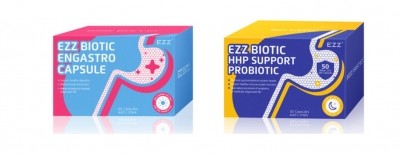Ageing impact: NMN supplementation increases NAD levels in healthy subjects - Japan RCT

That’s the key finding from a new placebo-controlled, randomised, double blind, parallel-group trial conducted in Japan and funded by Mitsubishi Corporation Life Sciences Limited
NNM is a NAD+ precursor that has demonstrated beneficial effects against ageing and aging-associated diseases in animal models.
NMN is ultimately converted to NAD+, a redox cofactor that mediates many metabolic enzymes. Its also regulates various biological processes, such as metabolism, DNA repair, gene expression, and stress responses.
Previous mouse models showed that NMN administration can increase NAD+ in various organs and ameliorate ageing-related diseases, such as obesity, diabetes, heart failure, stroke, kidney failure, and Alzheimer’s disease through NAD+-mediated pathways.
However, evidence of its effect on humans is still scarce.
Therefore in this study, the researchers conducted a placebo-controlled, randomized, double blind, parallel-group trial to investigate the safety of orally administered NMN and its efficacy to increase NAD+ levels in thirty healthy subjects.
Fifteen healthy volunteers received 250 mg/day of NMN or placebo for 12 weeks, and physiological and laboratory tests were performed during this period.
In addition, NAD+ and its related metabolites in whole blood were examined.
Significant increase
The researchers wrote: “Oral supplementation of NMN for 12 weeks caused no abnormalities in physiological and laboratory tests, and no obvious adverse effects were observed.
“NAD+ levels in whole blood were significantly increased after NMN administration. We also observed the significant rise in nicotinic acid mononucleotide (NAMN) levels, but not in NMN.”
Interestingly, they researchers also found that the increased amount of NAD+ was strongly correlated with pulse rate before the administration of NMN.
They added: “Because we used a fixed dosage of NMN for all participants in this study, the body weight and age were assumed as correlated factors. However, physical parameters, such as body weight and body composition, revealed a weak correlation.
“In contrast, pulse rate exhibited a strong positive correlation with the increase in NAD+ levels. The exact reason is unclear, but pulse rate may be related to energy expenditure, and it is possible that pulse rate is a confounding factor of energy expenditure. However, further studies are necessary for the precise interpretation of this result.”
The researchers concluded that with the global population rapidly ageing, it was crucial to get a better understanding of the potential of NAD+ as an anti-ageing molecule via human trials.
“These results suggest that oral administration of NMN is a safe and practical strategy to boost NAD+ levels in humans,” they noted.
Source: Frontiers in Nutrition
doi: 10.3389/fnut.2022.868640
Oral Administration of Nicotinamide Mononucleotide Is Safe and Efficiently Increases Blood Nicotinamide Adenine Dinucleotide Levels in Healthy Subjects
Authors: Keisuke Okabe, et al



















